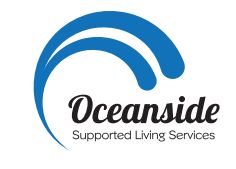
A Family-Owned Business Responds to the Crisis

By Ryan Colligan
Everyone has a plan ‘till they get punched in the mouth,” was famously said by the boxing legend, Mike Tyson.
On March 16, our two businesses, Oceanside Supported Living and Safe at Home Senior Care, received a Mike Tyson-size punch square in the mouth when the COVID-19 pandemic created a “shelter-in-place” ordinance throughout Santa Cruz County.
While many businesses were forced to shut their doors, ours have remained open. In fact, due to the nature of the services we provide, our clients have relied on us now more than ever.
Oceanside provides services that allow adults with developmental disabilities to live safely and independently in a manner of their own choosing. Safe at Home provides quality, non-medical in-home care to the elderly. We work with some of the most vulnerable individuals in Santa Cruz County which is why our services have been designated as “essential” by the Department of Public Health.
As the director of both agencies, my challenge during this crisis has been to support the health and well-being of our 180 employees while continuing to provide quality services to our 60 clients during this time of crisis.
As I write this, we are in the thick of it. We are learning and adapting our way through this pandemic the best we can. While we don’t have all the answers, we have learned three important lessons that have helped us stay on course.
1) Put Employees First
Countless studies have shown that happy employees are more invested in their work.
Lena, a member of the Oceanside Supported Living’s direct support staff, with Carol, a client.
We have the most compassionate, dedicated and caring employees as a part of our team which is why their health and safety is our number one priority.
Following the shelter-in-place ordinance, all employees who were able to, were asked to work from home. Others, providing direct support to our clients, were called individually and asked if they felt comfortable working and were told they would be supported with whatever decision they made.
For those that didn’t feel comfortable, we allowed them to temporarily step away while saving their shifts for whenever they felt comfortable coming back. For those that are comfortable, we have provided PPE for use during shifts, educational resources to protect them and our clients and 24/7 ongoing support from our case management team.
Overtime, which is normally a major operational concern, has been an afterthought as our priorities have shifted to keeping our clients and employees cared for.
2) Align Incentives with Desired Actions
The majority of our employees are hourly workers. These employees rely on their bi-weekly paychecks to put food on their tables.
We didn’t want our employees to feel like they had to make the decision to work out of necessity during this crisis, even if they were feeling sick, so we developed a policy to eliminate that conflict.
Employees who are sick receive 75% of their normal working wage if they are forced to miss work due to illness for an extended period of time. We want our employees to feel like they can protect their health and the health of our clients without fear of lost income.
3) Stay Connected
In a dynamic environment such as this, it’s critical to keep open lines of communication with your team. Our team communicates through several different channels to ensure that information can be shared and questions are answered in a timely manner.
Our management team has an active group chat for daily correspondence. Every Friday, we host our weekly Zoom calls to check-in with one another and stay connected on major happenings. Emails and phone calls go out daily to all of our clients, their family members and all our staff with updates and helpful resources.
Being punched in the mouth hurts but it’s not the end of the fight. For us, it’s just the beginning. We will continue to learn, continue to adapt, and hopefully, when this all over, end up stronger than we’ve ever been.





